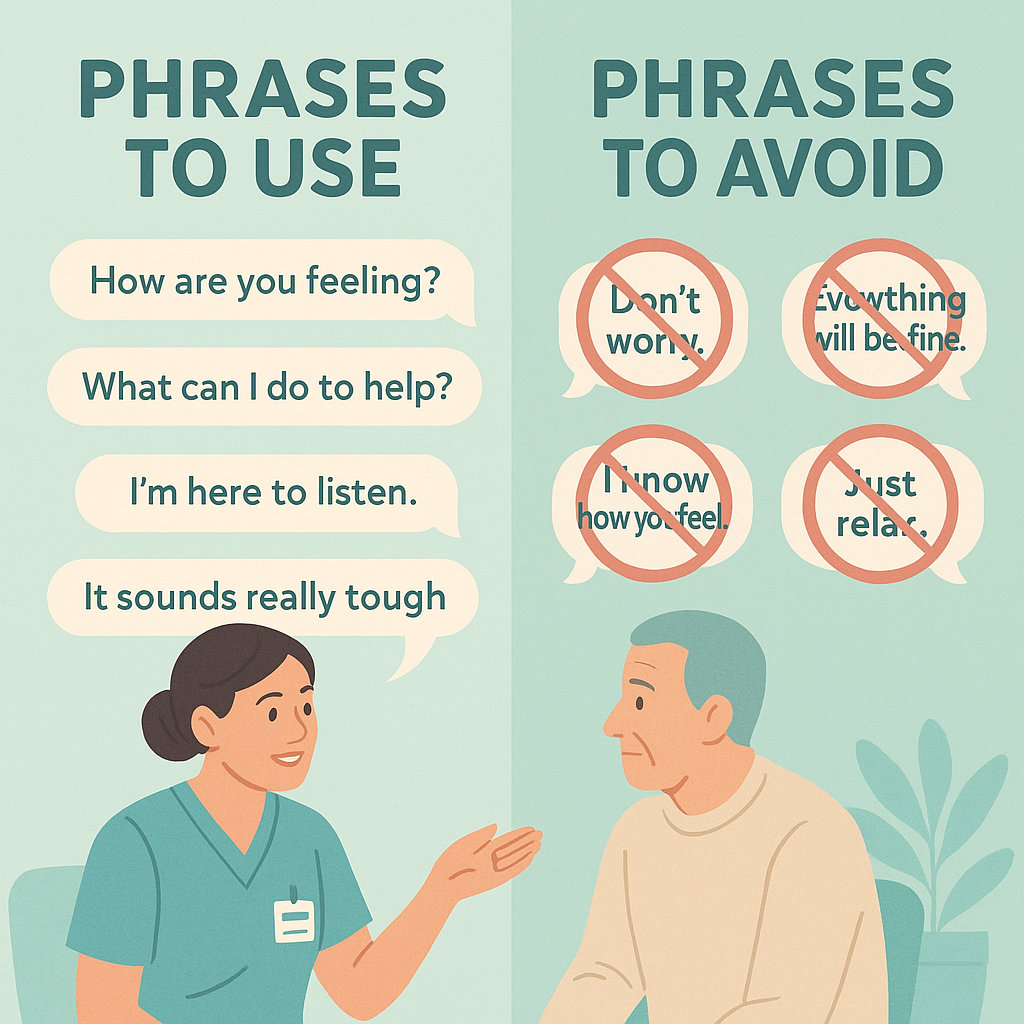Therapeutic communication is a must-know skill for every nurse, especially when preparing for the NCLEX or building a solid nursing bundle. It helps a registered nurse (RN nurse) connect with patients, build trust, and provide emotional support.
In this quick guide, you’ll learn what to say — and what not to say — to make every patient interaction more effective and caring.
🩺 What Is Therapeutic Communication?
Therapeutic communication means using words and actions that encourage patients to talk openly about their feelings and needs. It helps patients feel heard and supported — a big part of safe, patient-centered nursing care.
It’s not about giving advice or talking too much — it’s about listening with empathy and responding the right way.
✅ Phrases to Use
Here are simple, safe phrases every RN nurse should use to show empathy and build trust:
| ✅ Good Phrases | 💡 Why They Work |
|---|---|
| “Tell me more about how you’re feeling.” | Encourages patient to open up |
| “I’m here to listen.” | Builds trust and shows support |
| “That must be really hard for you.” | Validates patient’s feelings |
| “What can I do to help you right now?” | Shows willingness to help |
| “I understand this is difficult for you.” | Shows empathy and understanding |
| “Take your time. I’m not in a rush.” | Reduces anxiety and shows respect |
❌ Phrases to Avoid
Some common phrases actually block communication. On the NCLEX, you’ll often see questions about which phrases to avoid. Memorize these “don’ts” to ace your test and care for patients properly.
| ❌ Avoid Saying | ⚠️ Why It’s a Problem |
|---|---|
| “Don’t worry, everything will be fine.” | False reassurance |
| “I know exactly how you feel.” | No one can truly know |
| “Why did you do that?” | Feels judgmental |
| “You should just…” | Giving advice is not therapeutic |
| “It’s not that bad.” | Minimizes the patient’s feelings |
| Changing the subject quickly | Shows you’re uncomfortable or not listening |
🧠 Tips for Therapeutic Communication
✅ Listen more than you talk — silence is powerful!
✅ Use open-ended questions — not yes/no questions.
✅ Watch your body language — sit down, make eye contact, and nod.
✅ Stay calm and patient — even if the patient is angry or upset.
✅ Never argue or challenge the patient — stay supportive.
🎓 Therapeutic Communication on the NCLEX
For NCLEX questions, always pick answers that:
- Show empathy
- Keep the patient talking
- Avoid advice or false reassurance
- Do not judge or argue
This is a frequent topic in nursing bundles and review guides because it’s critical for safe practice.
✅ Key Takeaway
Therapeutic communication helps every registered nurse provide better care. By using supportive phrases and avoiding communication blockers, you help patients feel safe, respected, and understood. Practice this skill daily — and watch your NCLEX scores and patient trust grow!

